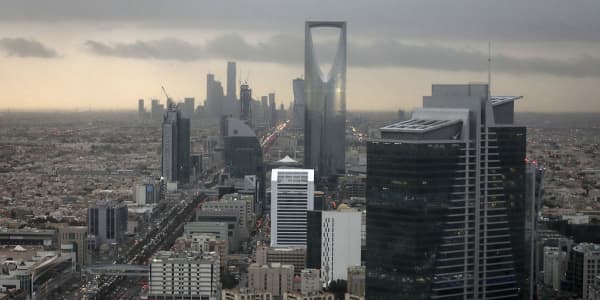
Sheikh Mohammed bin Khalifa Al Khalifa, Bahrain's oil minister, warned that investment in the sector is still not quite at optimal levels, which could cause supply concerns in the future.
Speaking to CNBC's Hadley Gamble at the Gateway Gulf Investor Forum in Manama, the Bahraini oil minister discussed the challenges that remain since the global oil price drop in 2015.
"One of the risks we have to be careful of is investments. Since the prices dropped in 2015, they have not really come back," Al Khalifa said. "And if you don't invest, you might face very soon a supply crunch."
"It was quite responsible for OPEC to try and get the level of investment back," the minister went on. "So the question remains: is the investment back? And I think the answer is not quite. That still might suggest a potential supply challenge in the very near future."
But in terms of where the markets are, "they are quite balanced," he said, describing shale oil production in the U.S. as the enduring disruptive factor.
"The unknown remains how quickly U.S. shale will react. But the worries about natural decline of conventional oil since no investments have come are probably the real concerns that OPEC will probably have to focus on."
The tug-of-war between U.S. shale and OPEC has been an overarching narrative in oil markets this year, with shale production expected to curb the upward push in oil prices despite an OPEC-led deal to limit production and other market disruptions like Venezuela's economic crisis and the recently-announced reimposition of U.S. sanctions on Iran.
Sanctions on Iran
President Donald Trump's announcement Tuesday pulling the U.S. out of the Iran nuclear deal and reimposing all previous sanctions on Tehran is expected to disrupt the global oil supply, putting more upward pressure on prices.
"I think if the sanctions hit hard, definitely the supply challenge is going be more real — how much supply that is is yet to be known," Al Khalifa said. "It's all a guess right now and we'll have to see how the developments transpire over time."
Sanctions on Iran, OPEC's third-biggest producer, could remove up to 500,000 barrels per day (bpd) from the market, analysts predict. Since the signing of the Iranian nuclear deal in 2015, which lifted economic sanctions on the Islamic Republic in exchange for restrictions on its nuclear program, the country's exports have risen to about 2.5 million bpd from less than 1 million bpd, according to Reuters.
Already, oil importers like South Korea have said they would seek U.S. waivers to buy Iranian oil. Meanwhile, Saudi Arabia, OPEC's largest producer and exporter, has suggested it could raise its oil output to make up for any supply shortage caused by the sanctions.





